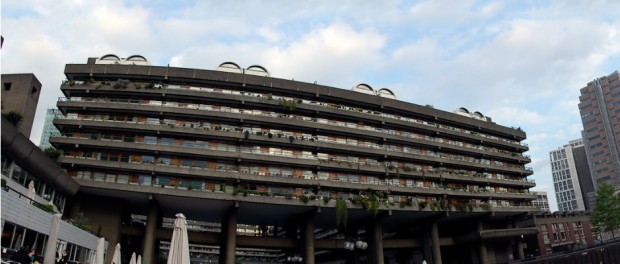Leave those kids alone: the perils of performance and parenthood

Huddersfield, Christmas Day, 1977. The national firemen’s strike hit its ninth week. The Sex Pistols – in the midst of the media witch hunt portraying them as the evil foes of decency – staged a benefit to raise funds for the families affected and, earlier in the day, staged a Christmas party for the kids. Sid Vicious and Johnny Rotten were in their element, handing out cake, provoking food fights, gooning around for family photographs, doling out free Sex Pistols merchandise as gifts. The kids embraced the mad spectacle and enjoyed the music for what it was; an excuse to jump about and have fun at Christmas.
Children should be exposed to music at an early age. My nephew, a budding toddler, is a regular guest at baby raves where he enjoys hopping around amid the big sounds and colourful lights – and his parents enjoy showing him their stunning “we are now over 30” moves. Before teenhood strikes, there’s a spell where a child absorbs sound with the minimum of critical assessment and with the purest of gut reactions. For parents across the spectrum, from the most chilled out, to those desperately following the guidebooks to fruitful child development, there’s little argument that letting kids hear music is a good thing. Plus you don’t have to worry about the rude words. My favourite song at age six was ‘Centerfold’ by the J. Geils Band – I found it on a compilation tape my aunt gave me. I only twigged there might be more to the song than catchy sing-alongs when I was bopping away one day and overheard my aunt asking “Should he be listening to this?” And my dad shrugging, “Well, it’s a bit late to worry about it now isn’t it?” What did I care? I didn’t have a thought in my head except how much I loved it.
Attending the Sound Unbound – Classical Weekender at the Barbican back in November, I was reminded of two things; first, that being a parent is a feat of strength that continues to awe me; secondly, that often it’s the parents, not the kids, who don’t have a thought in their heads.
During renditions of Bach, Stravinsky and Hindemith by Jeremy Denk and the Britten Sinfonia, a child one row back pirouetted round and round in his seat while questioning repeatedly how long they had to stay. Later, in the main auditorium, Mari and Håkon Samuelsen – world-class virtuosos on the violin and cello respectively – took aim at Bach, Sollima, Glass and Handel in a series of intricate solo and duo performances. Throughout the first half of the performance, however, they were overshadowed by the two under-fives who had taken occupation of the row of seats nearest the stage in order to canter back and forth in front of the audience, squirming over the obstacle course of arm-rests and crawling along the floor. Finally, in the close quarters of the Pit Theatre, the Calder Quartet tackled Britten, Nyma, Joby Talbot and Thomas Ades. Over the constant shrill interruptions of a child and guardian exchanging bored noises and “Shhh!” respectively. In each case, a parent – eventually – had to extricate their child from the room. My heart went out to them every time.
To the children I mean. In each instance, a child was being needlessly tormented thanks to the ignorance or selfishness of a parent. A being lacking the ability to focus for a sustained period of time, without more than a minute or two of enduring interest in what they were seeing, with a fervent desire to be moving about and testing their voice and limbs, was being forced into an unnatural posture of silence and stillness.
Hold on. I actually mean my heart went out to the performers. While Denk and the Britten Sinfonia had sufficient weight of sound to overwhelm any intrusion, the Samuelsens had travelled a significant distance to pour heart and soul into their work but, instead, only a limited amount of the sweat they put into their performance was visible because the disinterested horseplay in the front row proved stunningly disruptive. In the case of the Calder Quartet, the potential impact of skillfully played stringed instruments at close quarters, was deadened effectively by the high tones of a three year old who wanted to be anywhere else but there. I can’t imagine what it feels like to spend time working oneself up to a peak of mental, technical and physical preparation ready to face a mass audience, only to end up as background noise.
Wait, actually, I meant I empathised with the audience. The gentleman alongside me during the Denk/Britten Sinfonia performance was clearly a true lover of the music; he was openly angered that his pleasure was disrupted on such a sustained basis. Worse, he was caught in the English dance of politeness – clearly feeling that complaining would have made him ‘the bad guy’ – so he suffered in twitching, scowling, tense and harassed silence. In the Barbican Hall, a near full room attending in order to luxuriate in the sound and sight of two uniquely talented performers, were held hostage with no choice except to endure the bobbing arythmic forms clattering about at the front lip of the stage. Meanwhile, the Calder Quartet performed in an almost entirely dark room in order to lend emphasis to the passion, flare and ecstatic energy of the performers’ gestures and music. Instead, the crackle of electric coursing round the room was the result of numerous bodies turning to shoot glances at the racket coming from the far back corner.
I felt sorry for the parents. In each case they had endured London travel conditions and had committed to the cost of the tickets – only to quit each performance with the eyes of a hundred strangers stabbing into the backs of their skulls. Some of those parents presumably wanted to experience the music – and they were utterly prevented from doing so. Others must have harboured enlightened desires to expose their children to new experiences, only to have their good intentions short-circuited by the fact that their sprogs didn’t give a hoot.
And that’s the ultimate truth; that no one caught up in the interaction – neither children, parents, performers, nor the hundreds attending as part of the audience – experienced anything other than disappointment and spoilt moments. That’s what was sad about it all – mutually assured disruption.
So, as a believer that parents are allowed out the house with kids and that kids definitely should experience live music, what am I suggesting? I think a starting point is simply to pick an appropriate event. Take an honest and realistic look at your child; are they truly going to have a good time? Examine the reason for taking them; is your child is an unwitting guinea-pig in your experiments with their mental development or is this something you believe they’ll truly enjoy? Is the event something where there’s true potential for mutual pleasure, or is seeing the event just a selfish desire of one’s own with the child merely an unwitting victim?
Pause; take a deep breath and think of the musicians. If you believe that they’re merely paid servants required to prance at your command, then there’s no helping you so go ahead. If you believe, on the other hand, that there’s an true connection at work in musical performance; that an artist bestows something of value and you, in turn, demonstrate your appreciation of the gift presented then please, consider how their day might be spoilt if you make the wrong choice.
Finally, imagine being part of that audience. No one there is a stranger; they’re people just like you, who paid for tickets, took the time to attend, who looked forward to the occasion with relish same as you did. Everyone there, including you and your child, deserves a positive experience. Now ask yourself: is a seated classical music concert the place to achieve that? If not, here’s some cake. The punk band in the venue next door are the ones for you.
